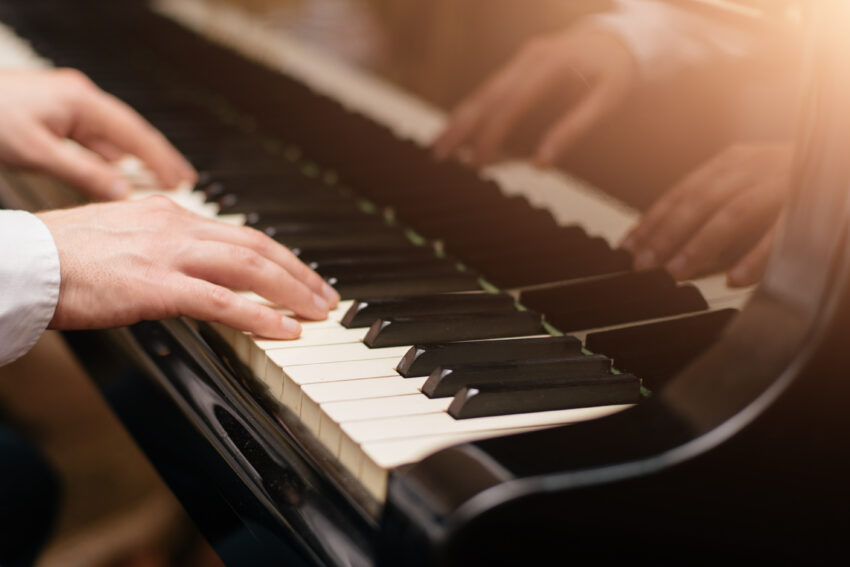What is a good age to start piano lessons?
The piano is a great and very attractive musical instrument for both children and adults. Tutors have a simple theory of why it is such an interesting activity for kids. Read more: What is a good age to start piano lessons?


The piano is a great and very attractive musical instrument for both children and adults. Tutors have a simple theory of why it is such an interesting activity for kids.
First of all, although it is not true, for real beginners, it seems easy to learn as the dynamics are very intense in playing the piano. Second, it is fun to explore and try new things with it. This is proven to be true, and it is probably the reason why young students find the inner motivation to keep going with their piano lessons.
What is the appropriate age to start piano lessons?
The answer to this question is not as easy as we want it to be. What we can surely say is that it is good to start music classes with this instrument earlier rather than later as a teenager. The best age for a youngster to begin seeing teachers for lessons is different depending on their development.
The answer also depends on the goal of the child, or parent- whether they will be taking music classes for fun or for professionaldevelopment in the future. The unified answer to this question should be: six to eight years old is a good age to begin practice.
How do I know if a child is ready to start piano lessons?
1. Developed motor skills
From a physical point of view, it is very important to take into account motor skills development. If you want your child to engage in this field, basic motor skills are necessary for it to be effective. Without those basic motor skills, it might be very hard to control their hands and their actions. This might cause anxiety and if not, it can cause uncertainty and it can detach them from the music classes, the teacher, and the idea of playing this musical instrument.
2. Focus
Before even thinking about making your child take classes in this music field, it is very important to make sure that they are able to focus for quite some time. Of course, nobody expects them to be in the zone for hours, but the bare minimum of thirty minutes is an absolute must for every young learner. This has to do very little with the piano itself, but it is very important for the lesson to be effective.
3. Attention to detail
Attention to detail seems like a skill that develops quite easily in children’s personalities, as they tend to pay attention to all the little things around them. However, we are speaking of attention to their hearing and their movements. This is how children shall understand if they are doing something well or not really in their musical pursuit.
4. Consistency
If your child is still in that phase where they want to try every activity in the world, but they take a few lessons and get bored, then this musical pursuit is not the right activity for them. However, if they have already accepted the idea that to be good at playing this instrument, you have to not only take classes a few times per week but practise at home daily, then this is the right thing for them.
A tip for the parents: Discipline and consistency are key, but you are the one who has to arrange the setting so that the youngsterfeels motivated. You have to make sure that they do have access to their instrument all the time. You have to put it in a lively area in your home so that the child can see it all the time. When the piano is tuned, these classes are fun to play, more than a task in your daily routine. Tuning the instrument regularly is one of the most important tasks for the parents.
5. Instructions follower
One of the most important skills that has to be developed to at least a certain extent to start musical tutoring sessions is that they have to be able to follow instructions. Of course, you have to consider their age, as this specific skill requires a specific level of developmental maturity. You cannot make a three-year-old follow instructions and stay calm for more than just a few minutes.
6. One, two, three, four
One of the most basic skills that most children after the age of four that want to take lessons in the field of this musical instrument can easily obtain is to count to four. This is a specifically important skill as the timing in music lessons requires counting to four. If the youngster starts taking music tutoring, especially with the piano without this crucial skill, the whole lesson will be a massive flop.
How to start piano lessons?
Music learning sessions can be a lot of fun. The first step to learning a musical instrument is to find a tutor. You can do it simply on TutorExtra by choosing the teacher that suits your needs or those of your child. You can pick from in-person tutoring or online classes from home. On TutorExtra, you can hire a private local tutor from the UK in your nearby area.
Read more:
What is a good age to start piano lessons?






















